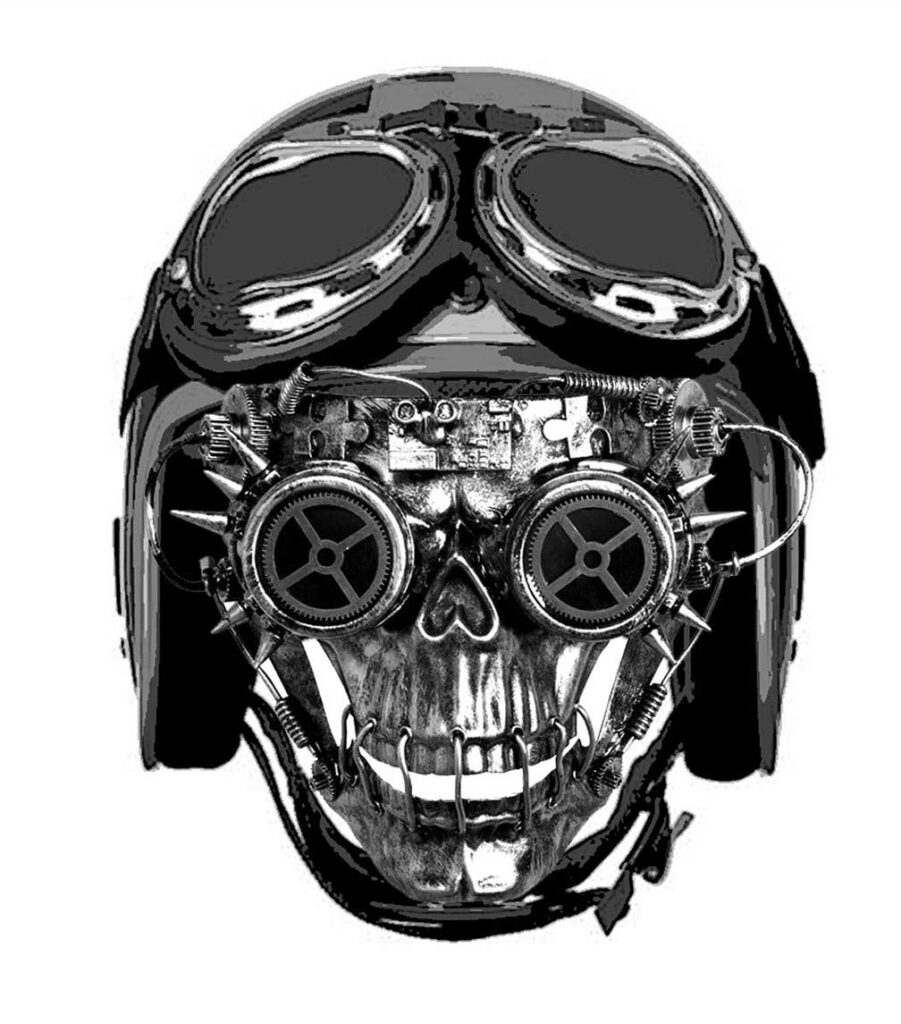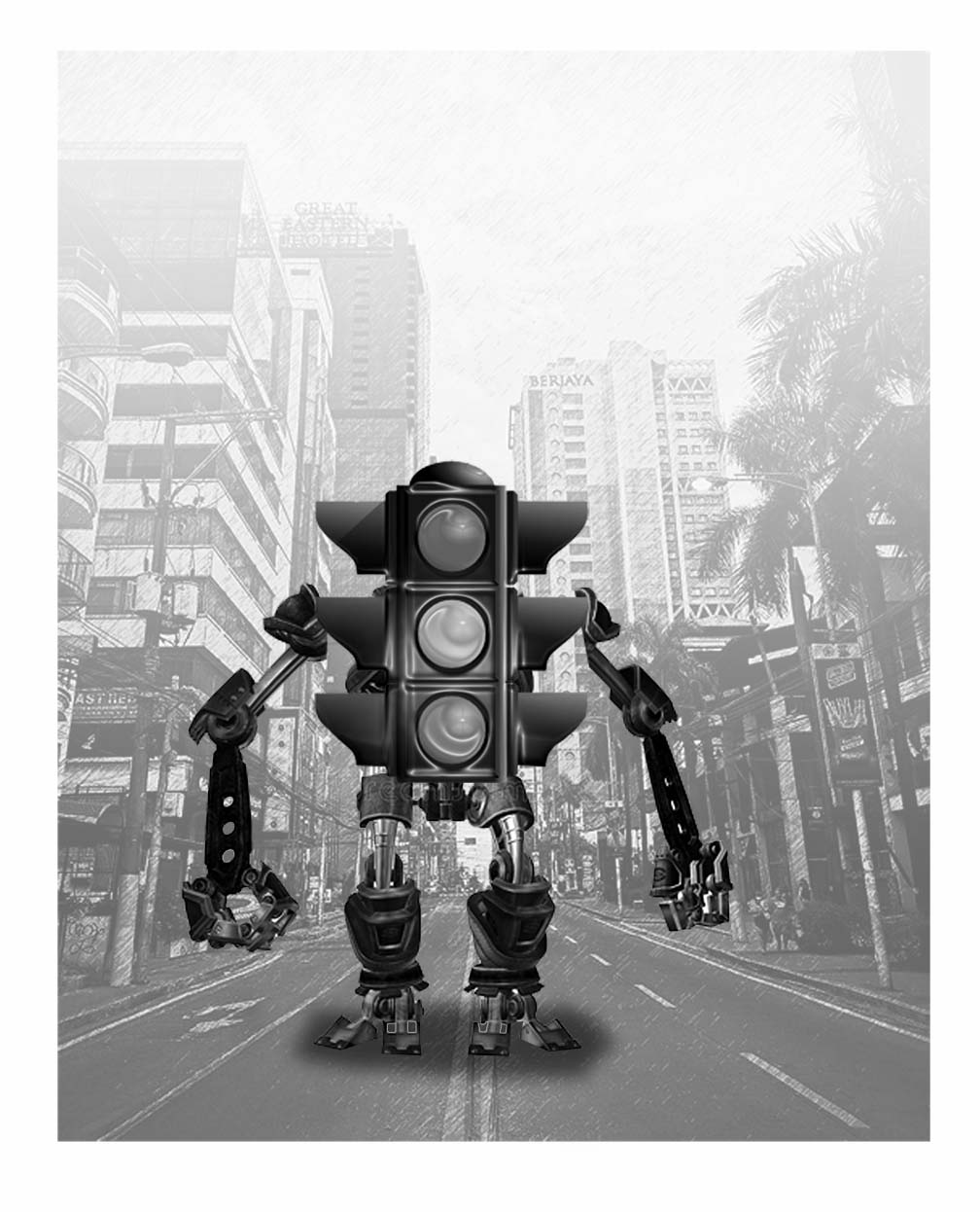It is mid-morning on a weekday along Ayala Avenue, and the stretch I’m on is no longer as toxic as it was during rush hour. The most rabid of motorists are off the road, although this is no reason to let my guard down. This is Manila, after all, and driving here is not about knowing how to operate a car so much as it is about knowing how to deal with traffic police. There are three ways, and none of them involve handing your license over when the officer asks for it.
The police often want money. And most apprehensions are contentious because many traffic signs are barely visible from the road and the interpretation of the rules can easily be done against your favor. That’s why I get nervous when I spot uniformed men on the street while I’m driving. I immediately think, “What’s wrong?” and then I think, “Did I do anything wrong?” I get especially nervous when I see the yellow and brown uniform of a Makati traffic enforcer.
I pass through this part of Ayala often enough to know that there is a MAPSA officer stationed at the bus stop in front of Glorietta mall. I think about him and his conspicuous yellow uniform, and his unit’s reputation for refusing bribes, not responding to sweet talk, and not giving special consideration to motorists with “official” decals. Buses and jeepneys unload in the middle of the road under his watch.
The light is yellow when I drive past Ayala Avenue and Courtyard Drive. Today there are two more MAPSA officers standing on the next corner, a few meters past the traffic light. It is ingrained distrust that makes me glance at them and think, “I see you, and you have nothing on me.” I already release the thought when I glance at my rearview mirror, to see if the bus behind me also drove through. It didn’t. I watch the turning traffic cross the intersection for a moment, then turn my attention to the traffic light ahead and wait for the light to change.
Someone knocks on my window. I immediately think it’s one of those able-bodied men weaving through stalled traffic asking for money, and I shoot him an annoyed look that says, “What??”
It’s the MAPSA. I roll down the window before he says, “You went through a red light.”
“No I didn’t, the light was yellow,” I point out calmly. I am telling the truth, there is no need to get defensive or argumentative.
“It’s already red.”
“Now it is. When I went through, it was yellow.”
He gestures to the curb and I pull over to the side of the road. He turns me over to “Ma’am,” presumably his supervisor. He fades in the background as this lady closes in, her strides lumbering and aggressive. I can’t even say she moves like a man. She moves like an ogre.
She looks at me as if I were just another erring motorist trying to talk her way out of a ticket, and she addresses me in a loud voice as if I were hard of hearing, as if it inconveniences her to state the obvious. “Ma’am, red light na ho ‘yon.” There is nothing polite about the way she says “ma’am” or “ho.” Even if it was protocol, she really shouldn’t have bothered.
“No, it was yellow—”
“I saw it. It was red.”
“It was yellow. I was in front of it and it was yellow. It was still yellow when I crossed—”
“If it was yellow I would let you go because you are allowed to go through a warning light—”
“Exactly.”
“It was red. I saw it.”
“And I saw it. It was yellow.”
And for the next couple of minutes, the exchange is reduced to childish argument: “Red.” “Yellow.” “Red!” “Yellow.” “RED!” “No. Yellow.” She talks even more loudly to drown me out and it irritates me. If I had been fibbing, I’d have given up at this point. Stop the charade, just toss her some money. It’s useless to insist on something that isn’t true. But I’m telling the truth. Why then, is my resistance wearing down? How can she stand there and say with utter confidence that I was wrong? Did my eyes trick me?
Am I wrong?
She advances again. “The light was red.”
“I’m telling you it’s yellow. I was the one driving through the traffic light, so naturally I could see—”
“Didn’t you hear the driver of the car behind you honking his horn? He could have crashed —”
“Excuse me.” I put my hand up, pushing the space between us. It silences her so effectively it’s as if I had just put my hand over her mouth. A car behind me — yet another fib? I have to put a stop to this. “There was no car behind me and I know that because I looked at my rearview mirror. There was a bus behind me. I didn’t hear any horn because there was no — ”
“The traffic turning into the intersection was already moving when you crossed. There could have been an accident because of what you have done! I know that intersection. Accident prone area ho ’yan! The car was already moving fast…” Every time she says something, her voice gets louder, so loud that it’s now impossible to get a word in and still be heard. I zone out, arguing inside my head that the turning traffic was on full stop and wouldn’t have been able to move at the speed she was claiming.
It is useless to talk at all, yet to give in is unacceptable. I stare at her until, finally, she stops talking and has nothing more to add.
“Are you done?”
She replies with a curt yes.
“Now you let me talk. The light was yellow. I saw it. How can you tell me it’s red when I saw it as I drove past? It was yellow.”
“Could you give me your license?”
“No. I didn’t violate any traffic rule.”
“Do you have your license?”
“Yes. I didn’t violate any traffic rules. I don’t need to show it to you.”
“Give me your license. If you have a complaint about the way you were apprehended, you may file it with our Customer Service.”
“What good will that do when no one in that office witnessed what just happened here?”
“You went through a red light! That area is an accident-prone area! That car could have crashed into yours!”
What else is there for me to say? That the light was yellow? “Are you shouting at me?”
She backs down. “No, I am just explaining,”
“And I heard you. You’re saying it’s red. I saw that light, and it was yellow. We can’t both be right. And what I’m saying now is you’re wrong.”
“Give me your license,” she pulls out a booklet of tickets and proceeds to write.
I sit back. It does not pay to get angry. That is why even from the beginning of this exchange, I made a conscious effort to argue my case calmly using logic. But how do I win an argument with a chimp? Truth is on my side, although I’m beginning to realize this has little bearing on my deliverance. Watching myself at this moment is like watching me, a competent swimmer, treading water and beginning to drown. “I know what I saw. That was a yellow light. And you were standing on that corner. You couldn’t see the light from there.”
She looks at me. Then she points her finger at me and jabs the air menacingly. “Just this once I’ll let you go. The next time you violate a traffic rule — ”
“I did not violate anything now!”
“I am here every day!” she yells again. “I know this beat! I will remember your car! And the next time you make even a little mistake — ”
“Write down my plate number then!” What I say next comes out instantly, like a reflex. “I myself am here every day and I never break the rules!” I am surprised by how quickly and wholeheartedly I embrace it as truth.
She points that finger at me again. “Tatandaan kita.” She says it in the same way thugs threaten to kill their victims, and this finally makes me snap.
“Tatandaan din kita!” This time, I glare back at her. This time, I don’t hide my anger. The name on her badge imprints on my brain: Turnina, S. I grab my smartphone from my bag and switch the camera on, but she has huffed back to the direction of her post in the split second that I aim it at her. I start to climb out of the car to come after her.
“Get her license! Get her car plates!” she screams at her minion, making me stay back in my seat. Flashcards start flipping in my mind: “What to do when your car plates are taken.” “What to do when enforcers forcibly take your license.” “What to do when your car is taken.” “What to do when you’re held against your will.” I think about how I am going to fight these people off. I think about the people I should call for help; the police don’t even cross my mind. This is what happens when you stand up against “authority” in a country whose people are conditioned to defer to titles and uniforms. This is what happens when you give a person like S. Turnina a rank.
In less than two seconds, the man who first asked me to pull over appears. “Ma’am, okey na. Just don’t do it again next time.” I know what he’s waiting for me to say. He’s waiting for me to say thank you, to acknowledge that the only reason I am being released is because I admitted I was wrong all along and they are just being gracious enough to let me go.

“She shouted at me. Tama ba ’yon?”
“Sorry ho ma’am, pasensiya na. Sige na ma’am, okey na.”
“It’s wrong!” I say, once again realizing that talking is useless. I grip the steering wheel to keep from slumping in my seat. “It’s wrong! It’s all wrong!” I repeat, crying now, unable to find the words to say what I really, really mean.


